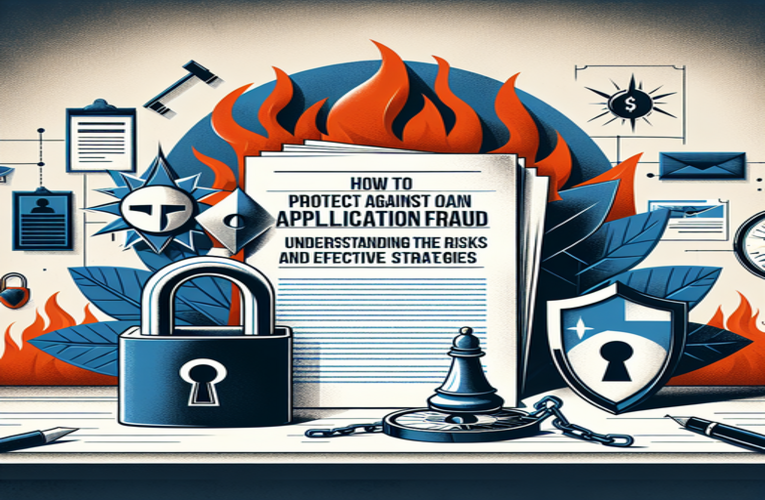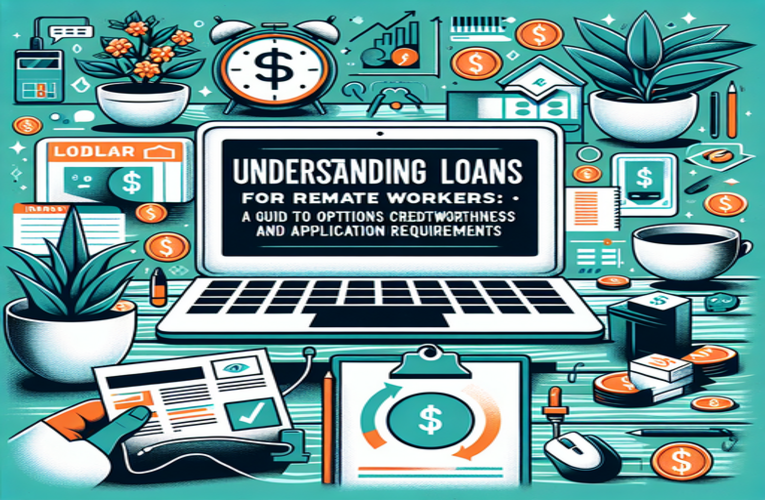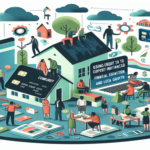Local co-op lending opportunities for community development and flexible repayment options
In today’s rapidly evolving economic landscape, understanding local co-op lending opportunities and the various community-based cooperative financing options is essential for fostering sustainable community development. These financial solutions not only offer access to ethical and affordable funding but also empower cooperatives to thrive and expand their ventures. Whether you’re part of an existing cooperative or looking to establish a new one, this article will guide you through the key aspects of local co-op financing solutions.
In this article, we will discuss:
- The key features of local cooperative lending options.
- The impact and benefits these community-based loans provide to local communities.
- The qualification criteria and application process for securing co-op financing.
- How flexible repayment terms can enhance financial stability through cooperative borrowing.
By exploring these topics, you will gain valuable insights into how local co-op lending and community-based cooperative loans can drive economic growth, create jobs, and strengthen community ties. Join us as we delve into the transformative power of cooperative financing and its potential to shape a prosperous and inclusive future.
Local co-op lending opportunities play a pivotal role in bolstering community development initiatives by providing ethical, accessible, and community-focused financing solutions. These community cooperative loan options are particularly advantageous for cooperatives aiming to establish new ventures, expand existing projects, or invest in essential equipment that benefits the local economy.
Table of Contents
Key Features of Community-Based Co-Op Loans
- Loan Amounts: Ranging from £10,000 to £85,000, accommodating various project sizes.
- Flexible Repayment Terms: Spanning from 1 to 20 years, tailored to suit different cash flow needs.
- Unsecured Financing: No requirement for personal guarantees or traditional collateral.
- Ethical Lending Practices: Focused on supporting democratically owned and operated enterprises.
These local cooperative financing options support community-centric businesses, contributing to economic growth while promoting social equity and sustainability within neighborhoods.
Impact and Benefits of Local Co-Op Lending Opportunities
- Economic Growth: Since 2002, community co-op lending initiatives have allocated over $5 million, benefiting more than 200 cooperatives across various sectors, including housing, renewable energy, creative industries, and eco-sustainability projects.
- Job Creation: Facilitates the revitalization of local initiatives, leading to increased employment opportunities and workforce development.
- Strengthening Community Ties: Enhances the sense of ownership, accountability, and collaboration among cooperative members and the wider community.
- Sustainable Development: Supports projects that prioritize environmental responsibility and long-term community well-being.
Current Trends in Cooperative Lending and Community Financing
The modern lending landscape is witnessing a significant shift towards community-centric and cooperative financing approaches. As individuals and organizations recognize the value of supporting local enterprises, the demand for local co-op lending opportunities continues to rise:
- Increasing Demand for Cooperative Financing Solutions: A growing number of entrepreneurs and businesses are seeking ethical financing alternatives that align with their values.
- Promotion of Inclusive Economies: Community-based co-op loans foster equitable economic development, ensuring that profits and benefits are shared among local stakeholders.
- Social Transformation and Empowerment: Cooperative lending enhances the social fabric of neighborhoods by empowering residents to participate actively in economic decision-making and community projects.
- Environmental Stewardship: Many cooperatives focus on sustainable practices, contributing to environmental preservation and eco-friendly initiatives.
By embracing these community cooperative loan options, communities can nurture sustainable growth, build resilience, and ensure a prosperous future that reflects the collective interests and values of their members.
Understanding the Qualification Criteria for Local Cooperative Financing Opportunities in Your Area
When exploring local co-op lending opportunities, it’s essential to understand the qualification criteria to ensure that your cooperative meets all necessary standards. These community financing options are primarily aimed at economically viable cooperatives operating within your area. Loans typically range from £10,000 to £85,000, catering to cooperatives planning to establish new ventures, expand existing projects, or invest in crucial infrastructure and equipment.
Key Elements to Consider When Applying for Community Co-Op Loans
- Eligibility Requirements:
- Present a robust financial plan with detailed projected revenues, expenses, and sustainability strategies.
- Provide a clearly defined operational strategy outlining how the funds will enhance business performance and community impact.
- Demonstrate a commitment to democratic ownership and cooperative principles.
- The Application Process:
- Prepare comprehensive documentation illustrating financial health and operational viability, including financial statements, business plans, and market analyses.
- Highlight past successes and future plans that align with community development goals.
- Engage with local cooperative networks or associations for support and guidance.
- Repayment Options:
- Benefit from flexible repayment terms ranging from 1 to 20 years, allowing for customization based on the cooperative’s cash flow and financial projections.
- Consider longer repayment periods to reduce monthly payments and ease financial management during initial growth phases.
- Unsecured Loan Opportunities:
- Access unsecured loans without the need for personal guarantees, which is particularly beneficial for cooperatives lacking traditional collateral.
- Mitigate personal financial risk while securing necessary funding for cooperative initiatives.
- Community Impact and Engagement:
- Demonstrate how the cooperative’s activities will support not only the business but also the broader community’s economic and social landscape.
- Showcase initiatives that promote local employment, skill development, and community services.
By thoroughly understanding and addressing these criteria, cooperatives can navigate the application process successfully and maximize the benefits from these ethical financial avenues. Meeting qualification standards positions your cooperative to make a lasting, positive impact on both your business and the wider community.
The Benefits of Flexible Repayment Terms in Local Co-Op Lending Opportunities
When navigating the world of local cooperative financing, one significant advantage stands out: the flexibility in repayment terms offered by community-based lending institutions. Unlike conventional banks, these cooperatives tailor loan agreements to meet the diverse needs of their members, fostering an environment where businesses can thrive without undue financial strain.
Key Features of Flexible Cooperative Lending
- Adaptable Loan Durations: Loans can be structured over periods ranging from 1 to 20 years, accommodating different business cycles and growth plans.
- Varied Loan Amounts: Financing options from £10,000 to £85,000 are available to support a wide array of projects and capital needs.
- No Personal Guarantees Required: This alleviates personal financial pressure on cooperative members, making financing more accessible.
- Customized Repayment Schedules: Options to adjust repayment amounts over time based on the cooperative’s revenue projections and seasonal fluctuations.
This level of flexibility is particularly advantageous for new and growing cooperatives, which may experience variable income streams. By opting for lower initial payments, they can increase their repayments as their revenue stabilizes, ensuring sustainable financial management.
| Year | Total Loans Disbursed | Number of Cooperatives Supported | Industries Impacted |
|---|---|---|---|
| 2002-2007 | $1 million | 40 | Housing, Agriculture |
| 2008-2013 | $1.5 million | 60 | Retail, Renewable Energy |
| 2014-2019 | $2 million | 70 | Technology, Creative Industries |
| 2020-2023 | $1 million | 30 | Healthcare, Sustainable Start-Ups |
Impact on Community Development and Economic Resilience
- Supporting Business Expansion and Innovation: Cooperative loans provide essential capital for businesses to grow and innovate, contributing to local economic vitality.
- Boosting Community Projects: Funds are often used for community development projects, such as building community centers, supporting local agriculture, and enhancing public services.
- Encouraging Social Entrepreneurship: Flexible financing encourages the creation of businesses that address social and environmental issues, fostering a culture of responsible entrepreneurship.
- Strengthening Local Economies: By keeping financial resources within the community, cooperative lending reinforces local economies and reduces dependency on external funding sources.
These lending opportunities benefit a diverse range of sectors, including worker-owned businesses, sustainable start-ups, and social enterprises. They do more than just support business expansion; they play a crucial role in strengthening the social and economic fabric of communities. This ripple effect underscores the broader societal benefits of local cooperative lending, highlighting its importance in enhancing community well-being and resilience.
Real-World Examples of Success
Consider the story of Green Fields Cooperative, a locally owned agricultural co-op that accessed a £50,000 loan with a 15-year repayment term. This financing enabled them to invest in sustainable farming equipment, increasing their production by 30% and creating ten new jobs in the community. Similarly, the Sunrise Worker Co-Op, a renewable energy start-up, secured a £75,000 unsecured loan without personal guarantees. With flexible repayment terms, they were able to focus on innovation and have since become a leading provider of solar solutions in the region, contributing to local environmental goals.
These examples illustrate the tangible benefits of local co-op lending opportunities and how flexible repayment terms can be a catalyst for community-driven success stories.
Summary
In summary, understanding local co-op lending opportunities, including regional cooperative loan programs and community-based co-op financing options, is crucial for fostering community development. Here are the key points to consider:
- Key Features: Loan amounts range from £10,000 to £85,000, with flexible repayment terms from 1 to 20 years and no personal guarantees required. These cooperative borrowing solutions are designed to meet the diverse needs of local organizations.
- Impact and Benefits: Over $5 million has been allocated to more than 200 cooperatives since 2002, supporting economic growth, job creation, and stronger community ties. This funding through community cooperative lending initiatives has significantly enhanced local economies.
- Qualification Criteria: Cooperatives must present solid financial plans and operational strategies. The application process requires documentation illustrating financial health and community impact, ensuring that applicants meet the standards of local cooperative financing programs.
- Repayment Flexibility: Loans offer adaptive payment options that can ease financial management for cooperatives, allowing them to align repayments with cash flow changes. This flexible cooperative repayment structure supports sustainable financial practices.
By exploring local co-op lending options, region-specific cooperative financing, and other similar programs, you can boost not only your cooperative’s success but also significantly contribute to community growth and resilience.
Questions and Answers
Which types of cooperatives can take advantage of local co-op lending programs?
Local cooperative lending opportunities are tailored for economically sustainable cooperatives across various sectors, including housing cooperatives, creative industry collectives, and eco-sustainability initiatives. Any cooperative aiming to launch new projects or scale existing operations is eligible to apply for these cooperative financing options.
What methods can cooperatives use to demonstrate financial stability when applying for cooperative loans?
Cooperatives can exhibit their financial stability by submitting comprehensive documentation, such as detailed financial statements, robust business plans, and projections for revenue and expenses. These documents should clearly articulate their operational strategies and potential for sustainable growth.
Are there any fees involved with obtaining local co-op loans?
While fees may vary depending on the cooperative lender, potential charges can include application fees, processing fees, or penalties for late payments. It is essential for cooperatives to carefully review all terms and conditions associated with any fees during the loan application process.
In what ways does supporting local cooperatives enhance social equity?
Supporting local cooperatives promotes social equity by empowering communities through democratically-owned enterprises. These businesses typically focus on community needs and invest in local development, fostering a more inclusive economy that benefits all community members.
Can individual applicants apply for these cooperative loans, or are they exclusively for cooperatives?
Local cooperative lending opportunities are specifically designed for cooperatives and not for individual applicants. Therefore, applicants must be part of a cooperative structure to qualify for the loans provided.
What types of community development projects are eligible for co-op funding?
Cooperative loans can finance a wide range of community development projects, including housing initiatives, local business expansions, educational programs, healthcare services, and sustainable environmental projects aimed at improving the overall well-being of the community.
How do repayment terms for cooperative loans compare to traditional bank loans?
Repayment terms for cooperative loans are typically more flexible than those of traditional bank loans, offering durations ranging from 1 to 20 years without requiring personal guarantees. This flexibility better accommodates the cash flow needs of cooperative businesses.
What importance does community engagement hold in cooperative lending?
Community engagement plays a vital role in cooperative lending as it strengthens connections among members, enhances accountability, and builds local economic resilience. Engaged communities are more likely to support local initiatives, leading to greater impact and sustainability.
How can cooperatives ensure they adhere to the principles of democratic ownership?
Cooperatives can uphold the principles of democratic ownership by establishing a governance structure that enables every member to participate in decision-making processes, ensuring that all voices are heard, and that the cooperative operates in the best interests of its members and the community.















